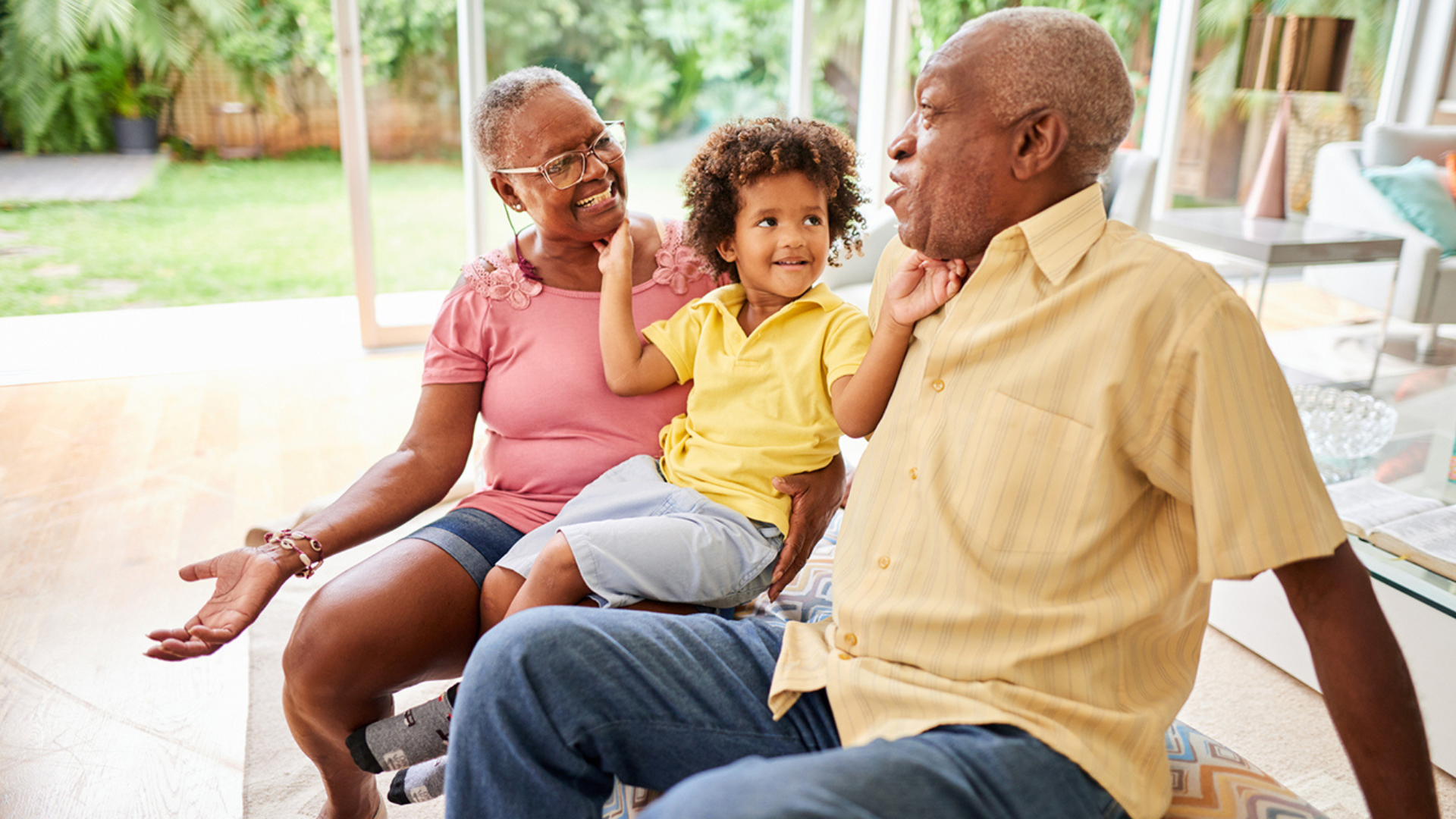
Have you ever watched your parents with your children and wondered if these are the same people who raised you? Maybe it’s because your mom gave your toddler a lollipop at 9 a.m., or because they didn’t impose bedtimes during a sleepover. No matter what the action is, you’ll be the one standing there asking yourself if your real parents have been abducted by aliens.
As tempting as it is to go with the alien abduction theory, that’s not it at all. Grandparents forgetting what it’s like to be parents is a common thing. Some people have coined the term “gramnesia” to describe it. Could your parents have it?
More from CafeMom: Grandma Goes on Epic Rant Against Millennials Who Treat Grandparents Like Babysitters
The term 'gramnesia' has been around for a while, but maybe you've never heard it.
Therapist and mom Allie McQuaid, aka @millennialmomtherapist on Instagram, posted a video in June to talk about the subject. “I just heard this term called ‘gramnesia’ when grandparents forget what it’s really like having young kids and I can’t stop thinking about how accurate it is,” she wrote in text.
“Please tell me if you’ve heard this term before and if you were also blown away at how accurate it is! 😆🤯,” she wrote in the post’s caption.
She went on to give some familiar examples of 'gramnesia.'
In the caption, McQuaid shared that she deals with a lot of Millennial parents who have parents seemingly suffering from gramnesia.
“I hear so many stories from my clients about how when they bring their kids around their own parents (so the grandparents) then they get slammed with comments like ‘oh you never had tantrums when you were a kid’ or ‘I potty trained you before you were one.’🤨🧐😒Or other ridiculous things like that which tells me that they probably forgot what it was really like in those early years of parenthood,” she wrote.
It is common to forget the hard parts of early parenthood.

“I can’t blame them because I even have a hard time remembering the first year of motherhood, and that was only four years ago,” McQuaid wrote.
Think about it. Many of us have trouble recalling every single moment of early parenthood. We know that our kids threw tantrums, and potty training was hard, and other things they did. But as a whole, the further away you get from it, the more you forget the trauma of those early years.
Speaking to HuffPost, McQuaid explained that it’s natural to have a “foggier memory of how things truly were” as we get older, “especially if the experience we had was particularly difficult or even traumatic.” There’s a psychological phenomenon called “euphoric recall,” which says that people have a tendency to remember past experiences, especially negative ones, much more positively than they actually were.
Motherhood and parenting have changed a lot since our parents did it.
In her Instagram post, McQuaid makes a good point that “older generations of moms were not given space to express emotions or indicate that they were struggling to adjust to motherhood.”
Many millennial moms have been able to parent the way they wanted to through the help of online forums, classes, books, and our own mothering communities. Having access to so much information and the support of communities with diverse parenting philosophies has absolutely helped change the ways we parent.
As she’s points out, there’s less of a stigma to “speak out about the realities of motherhood” for millennials.
More from CafeMom: Watching My Mom Being a Better Grandma Than a Parent Is Heartbreakingly Beautiful
Despite understanding the changes, parents still feel stuck.
Just because we can understand where our moms are coming from when they admonish us for not keeping our babies warm enough in 80 degree weather doesn’t mean it isn’t hurtful. McQuaid noted that many parents still find the behavior frustrating or even invalidating of their parenting. But when it comes to trying to talk to our parents about it, many of us stay silent to avoid stereotypes about who millennials are as parents.
“It makes these parents feel like they can’t share their struggles or emotions with their parents — the grandparents — or have difficulty setting boundaries with them,” she said. “Check your capacity if you have the space or energy to even consider bringing up your frustration with your parents.”
She advises parents to “revisit in a way that makes sense to you and your relationship with your parents.”
Do whatever feels right for you.




